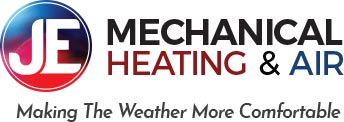Signs You Need to Replace Your HVAC Filter
Your HVAC system is crucial for maintaining a comfortable and healthy indoor environment, whether at home or in your business. One of the most important components of this system is the HVAC filter. The HVAC filter traps dust, dirt, and other particles, ensuring clean air circulates throughout your space. Over time, these filters become clogged and less effective, which can lead to various problems. Knowing when to replace your HVAC filter is essential for the efficient operation of your system and the well-being of those inside.
Decreased Airflow and Reduced Heating/Cooling Efficiency
Identifying Poor Airflow
Poor airflow is often the first sign that your HVAC filter needs to be replaced. Symptoms include weak air from vents, inconsistent temperatures throughout the space, or an HVAC system that seems to be running constantly but not effectively heating or cooling. If you notice that certain rooms are not reaching the desired temperature or there is noticeably less air flowing from the vents, the HVAC filter may be clogged and needs replacing.
Effects on HVAC Performance
A clogged HVAC filter can drastically affect the performance of your heating and cooling system. When the filter is dirty, the system has to work harder to push air through, causing increased wear and tear on components. This added stress can lead to reduced efficiency, higher energy bills, and, eventually, the need for more frequent HVAC repairs. The system’s ability to maintain a consistent temperature is compromised, affecting overall comfort levels.
Remedies and Solutions
To remedy decreased airflow, the first step is to replace the HVAC filter. This task is straightforward and should be done regularly. Our professionals recommend setting a reminder to check and possibly replace your filter monthly, especially during high-usage periods. If, after replacing the filter, you still experience issues, it’s wise to call in our technicians for a more thorough HVAC service. They can inspect the system to ensure there are no other underlying problems affecting airflow or efficiency.
Increased Dust and Allergens Indoors
Signs of Excess Dust and Allergens
Another indicator that you need a new HVAC filter is an increase in dust and allergens inside your home or business. If you notice more dust settling on surfaces, or if members of your household or employees are experiencing more allergy symptoms like sneezing, coughing, or itchy eyes, your filter may no longer be effectively trapping these particles.
Impact on Indoor Air Quality
A cluttered HVAC filter significantly compromises indoor air quality. Dust, pollen, and other allergens that would normally be trapped by a clean filter end up circulating through the air ducts and into your living or working spaces. This can exacerbate allergy and asthma symptoms, causing discomfort and potential health issues, especially for individuals with pre-existing respiratory conditions. Maintaining a clean filter is essential for a healthier indoor environment.
Importance of Regular HVAC Filter Replacements
Regular replacement of the HVAC filter is crucial in maintaining good air quality. Our professionals suggest marking your calendar for routine checks. Generally, filters should be replaced every 1-3 months, but this can vary depending on your specific system, usage levels, and the presence of pets or allergy sufferers in your household. Our technicians can provide personalized HVAC services to establish a filter replacement schedule that works best for your needs. Regular maintenance not only improves air quality but also enhances the overall efficiency and lifespan of your HVAC system.
Unusual Noises Coming from the HVAC System
Recognizing Alarming Sounds
Strange noises coming from your HVAC system are a clear sign that something might be wrong. These noises can range from banging, clanking, or whistling to grinding sounds. Each of these unusual sounds can indicate different issues within the HVAC system, many of which may be related to a dirty or clogged HVAC filter. If you notice any of these sounds, it’s crucial to take action immediately to prevent further damage to the system.
Potential Causes Linked to Dirty Filters
A dirty HVAC filter can make the system work harder, causing various components to strain and produce unusual noises. For example, poor airflow due to a clogged filter can cause the blower motor to work overtime, leading to whining or grinding noises. Whistling sounds can result from air trying to pass through a restricted filter. Ignoring these sounds can lead to more significant problems and costly HVAC repairs in the future.
Immediate Actions to Take
If you hear alarming sounds coming from your HVAC system, the first step is to replace the HVAC filter. Often, this simple step can resolve the issue if the noise is due to restricted airflow. If the noises persist after replacing the filter, it may be necessary to contact our professionals for a thorough HVAC service. Our technicians can inspect the system, identify the cause, and perform the necessary HVAC repairs to restore quiet and efficient operation.
Visual Inspection and Change Frequency
Understanding When to Inspect Your Filter
Regular inspection of your HVAC filter is crucial for maintaining system performance. It’s essential to check your filter at least once a month, especially during periods of heavy usage like summer and winter. By doing so, you can identify when the filter needs to be changed before it affects the efficiency of your HVAC system. Our professionals recommend setting a reminder to help keep track of these inspections.
Visible Signs Your Filter Needs Replacement
During your inspections, look for visible signs that indicate the need for a filter replacement. A dirty or clogged filter will appear gray or brown and covered in dust and debris. If you cannot see the material of the filter itself due to the buildup, it’s time for a replacement. Additionally, if you notice any tears or damage to the filter, replace it immediately to maintain proper filtration and system performance.
Recommended Replacement Timeline
While the general rule is to replace your HVAC filter every 1-3 months, the ideal frequency can vary depending on several factors. Homes with pets, allergy sufferers, or high dust levels may require more frequent replacements. Conversely, systems in less dusty environments may have longer intervals between changes. Our technicians can provide tailored advice based on the specific needs of your household or business. Regular maintenance and prompt replacement of your HVAC filter ensure optimal airflow and system efficiency.
Conclusion
Regular replacement of your HVAC filter is crucial for the efficient operation and longevity of your heating and cooling system. Recognizing the signs that indicate the need for a new filter, such as decreased airflow, increased dust and allergens, unusual noises, and visual inspection, can prevent many common HVAC issues. Routine maintenance and timely filter changes help improve indoor air quality, enhance system performance, and reduce the need for costly HVAC repairs.
At JE Mechanical HVAC, Corp., our professionals are dedicated to ensuring your HVAC system runs smoothly and efficiently. We’ll take care of your HVAC filter in Cumming to help you maintain your system, identify any issues, and provide timely solutions. Don’t wait for problems to escalate. Contact us today to schedule your HVAC service and keep your environment comfortable and healthy.




